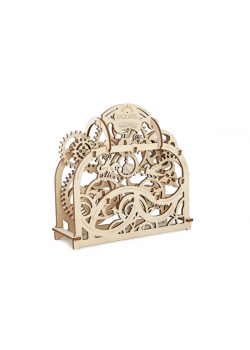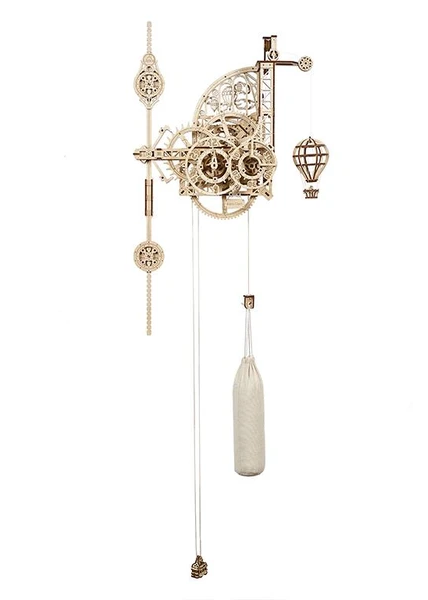MENU
- Board Games +
-
Collectible Card Games
- Altered
- Collectible Card Game Supplies +
- Disney Lorcana
- Disney Lorcana Singles +
- Dragonball Super Card Game
- Flesh and Blood
- Magic: The Gathering
- Magic: The Gathering Singles +
- Standard +
- Bloomburrow
- Bloomburrow Foil
- Brothers' War
- Brothers' War Foil
- Dominaria United
- Dominaria United Foil
- Duskmourn: House of Horror
- Duskmourn: House of Horror Foil
- Foundations
- Foundations Foil
- Lost Caverns of Ixalan
- Lost Caverns of Ixalan Foil
- March of the Machine
- March of the Machine Foil
- March of the Machine: The Aftermath
- March of the Machine: The Aftermath Foil
- Murders at Karlov Manor
- Murders at Karlov Manor Foil
- Outlaws of Thunder Junction
- Outlaws of Thunder Junction Foil
- Outlaws of Thunder Junction: The Big Score
- Outlaws of Thunder Junction: The Big Score Foil
- Phyrexia: All Will Be One
- Phyrexia: All Will Be One Foil
- Wilds of Eldraine
- Wilds of Eldraine Foil
- 2012-2025 Pioneer Era +
- Adventures in the Forgotten Realms
- Adventures in the Forgotten Realms Foil
- Amonkhet Block +
- Battle For Zendikar block +
- Core Sets +
- Dominaria
- Dominaria Foil
- Double Feature
- Double Feature Foil
- Guilds of Ravnica
- Guilds of Ravnica Foil
- Ikoria: Lair of Behemoths
- Ikoria: Lair of Behemoths Foil
- Innistrad: Crimson Vow
- Innistrad: Crimson Vow Foil
- Innistrad: Midnight Hunt
- Innistrad: Midnight Hunt Foil
- Ixalan Block +
- Kaladesh Block +
- Kaldheim
- Kaldheim Foil
- Kamigawa: Neon Dynasty
- Kamigawa: Neon Dynasty Foil
- Khans of Tarkir Block +
- Magic 2020
- Magic 2020 Foil
- Magic 2021
- Magic 2021 Foil
- Ravnica Allegiance
- Ravnica Allegiance Foil
- Return to Ravnica Block +
- Shadows Over Innistrad Block +
- Streets of New Capenna
- Streets of New Capenna Foil
- Strixhaven: Mystical Archives
- Strixhaven: Mystical Archives Foil
- Strixhaven: School of Mages
- Strixhaven: School of Mages Foil
- Theros Beyond Death
- Theros Beyond Death Foil
- Theros Block +
- Throne of Eldraine
- Throne of Eldraine Foil
- War of the Spark
- War of the Spark Foil
- Zendikar Rising
- Zendikar Rising Foil
- 2003-2012 Modern Era +
- 1993-2003 +
- Eternal and Masters Sets +
- Double Masters
- Double Masters 2022
- Double Masters 2022 Foil
- Double Masters Foil
- Eternal Masters
- Eternal Masters Foil
- Iconic Masters
- Iconic Masters Foil
- Masters 25
- Masters 25 Foil
- Modern Event Deck 2014
- Modern Horizons
- Modern Horizons 2
- Modern Horizons 2 Foil
- Modern Horizons 3
- Modern Horizons 3 Foil
- Modern Horizons Foil
- Modern Horizons: Retro Frame Foil
- Modern Masters
- Modern Masters 2015
- Modern Masters 2015 Foil
- Modern Masters 2017
- Modern Masters 2017 Foil
- Modern Masters Foil
- Mystery Booster (pw symbol)
- Mystery Booster Foil (pw symbol)
- Mystery Booster: Convention Edition Exclusives
- Time Spiral: Remastered
- Time Spiral: Remastered Foil
- Ultimate Masters
- Ultimate Masters Foil
- Commander +
- Adventures in the Forgotten Realms: Commander
- Adventures in the Forgotten Realms: Commander Foil
- Bloomburrow: Commander
- Bloomburrow: Commander Foil
- Brothers' War: Commander
- Brothers' War: Commander Foil
- Commander (original)
- Commander 2013 Edition
- Commander 2014
- Commander 2015
- Commander 2016
- Commander 2017
- Commander 2018
- Commander 2019
- Commander 2020
- Commander 2021
- Commander 2021 Foil
- Commander Anthology
- Commander Anthology 2018
- Commander Collection: Black
- Commander Collection: Black Foil
- Commander Collection: Green
- Commander Collection: Green Foil
- Commander Legends
- Commander Legends Foil
- Commander Legends: Battle for Baldur's Gate
- Commander Legends: Battle for Baldur's Gate Foil
- Commander Masters
- Commander Masters Foil
- Commander's Arsenal
- Dominaria United: Commander
- Dominaria United: Commander Foil
- Duskmourn: House of Horror: Commander
- Duskmourn: House of Horror: Commander Foil
- Innistrad: Crimson Vow: Commander
- Innistrad: Crimson Vow: Commander Foil
- Innistrad: Midnight Hunt: Commander
- Innistrad: Midnight Hunt: Commander Foil
- Kaldheim: Commander
- Kaldheim: Commander Foil
- Kamigawa: Neon Dynasty: Commander
- Kamigawa: Neon Dynasty: Commander Foil
- Lost Caverns of Ixalan: Commander
- Lost Caverns of Ixalan: Commander Foil
- March of the Machine: Commander
- March of the Machine: Commander Foil
- Modern Horizons 3: Commander
- Modern Horizons 3: Commander Foil
- Murders at Karlov Manor: Commander
- Murders at Karlov Manor: Commander Foil
- Outlaws of Thunder Junction: Commander
- Outlaws of Thunder Junction: Commander Foil
- Phyrexia: All Will Be One: Commander
- Phyrexia: All Will Be One: Commander Foil
- Starter Commander Decks
- Starter Commander Decks Foil
- Streets of New Capenna: Commander
- Streets of New Capenna: Commander Foil
- Wilds of Eldraine: Commander
- Wilds of Eldraine: Commander Foil
- Zendikar Rising: Commander
- Zendikar Rising: Commander Foil
- From The Vault +
- Duel Decks +
- Duel Decks Anthology, Divine vs. Demonic
- Duel Decks Anthology, Elves vs. Goblins
- Duel Decks Anthology, Garruk vs. Liliana
- Duel Decks Anthology, Jace vs. Chandra
- Duel Decks: Ajani vs. Nicol Bolas
- Duel Decks: Blessed vs. Cursed
- Duel Decks: Divine vs. Demonic
- Duel Decks: Elspeth vs. Kiora
- Duel Decks: Elspeth vs. Tezzeret
- Duel Decks: Elves vs. Goblins
- Duel Decks: Elves vs. Inventors
- Duel Decks: Garruk vs. Liliana
- Duel Decks: Heroes vs. Monsters
- Duel Decks: Izzet vs. Golgari
- Duel Decks: Jace vs. Chandra
- Duel Decks: Jace vs. Vraska
- Duel Decks: Knights vs. Dragons
- Duel Decks: Merfolk vs. Goblins
- Duel Decks: Mind vs. Might
- Duel Decks: Nissa vs. Ob Nixilis
- Duel Decks: Phyrexia vs. the Coalition
- Duel Decks: Sorin vs. Tibalt
- Duel Decks: Speed vs. Cunning
- Duel Decks: Venser vs. Koth
- Duel Decks: Zendikar vs. Eldrazi
- Masterpiece Series +
- Premium Deck Series +
- Promos and Special sets +
- Battle Royale Box Set
- Battlebond
- Battlebond Foil
- Beatdown Box Set
- Beatdown Box Set Foil
- Brothers' War: Retro Frame Artifacts
- Brothers' War: Retro Frame Artifacts Foil
- Clash Pack
- Collector's Edition
- Deckmasters
- Dominaria: Remastered
- Dominaria: Remastered Foil
- Explorers of Ixalan
- Foundations Jumpstart
- Game Night
- Global Series: Jiang Yanggu and Mu Yanling
- Guild Kits
- International Edition
- Jumpstart
- Jumpstart 2022
- Magic Game Night: Free-For-All
- Magic Game Night: Free-For-All Foil
- March of the Machine: Multiverse Legends
- March of the Machine: Multiverse Legends Foil
- Outlaws of Thunder Junction: Breaking News
- Outlaws of Thunder Junction: Breaking News Foil
- Prerelease Cards
- Prerelease Cards Foil
- Promo 15th Anniversary
- Promo Arena League
- Promo Asia Pacific Land Program
- Promo Buy-A-Box
- Promo Buy-A-Box Foil
- Promo Celebration Cards
- Promo Champs
- Promo Duels of the Planeswalkers
- Promo European Land Program
- Promo Friday Night Magic
- Promo Game Day
- Promo Gift Pack
- Promo Grand Prix
- Promo Guru
- Promo Happy Holidays
- Promo Hascon 2017
- Promo Intro Pack
- Promo Judge Gift Program
- Promo Launch Party & Release Event
- Promo Legend Membership
- Promo Magic Player Rewards
- Promo Media
- Promo Media Foil
- Promo Pro Tour
- Promo Super Series
- Promo Two-Headed Giant Tournament
- Promo Ugin's Fate
- Promo Unique and Miscellaneous
- Promo Unique and Miscellaneous Foil
- Promo Vanguard
- Promo World Magic Cup Qualifier
- Promo Worlds
- Promo WPN/Gateway
- Ravnica: Clue
- Ravnica: Clue Foil
- Ravnica: Remastered
- Ravnica: Remastered Foil
- Secret Lair Drop Series
- Secret Lair Drop Series Foil
- Signature Spellbook: Chandra
- Signature Spellbook: Chandra Foil
- Signature Spellbook: Gideon
- Signature Spellbook: Gideon Foil
- Signature Spellbook: Jace
- Signature Spellbook: Jace Foil
- SLX Cards
- Special Guests
- Special Guests Foil
- Summer of Magic
- The List
- The List Foil
- War of the Spark: Japanese Alternate Art
- War of the Spark: Japanese Alternate Art Foil
- Wilds of Eldraine: Enchanting Tales
- Wilds of Eldraine: Enchanting Tales Foil
- Zendikar Rising: Expeditions
- Zendikar Rising: Expeditions Foil
- Universes Beyond +
- Assassin's Creed
- Assassin's Creed Foil
- Commander: The Lord of the Rings: Tales of Middle-earth
- Commander: The Lord of the Rings: Tales of Middle-earth Foil
- Doctor Who
- Doctor Who Foil
- Fallout
- Fallout Foil
- Fallout Foil
- Jurassic World Collection
- Jurassic World Collection Foil
- The Lord of the Rings: Tales of Middle-Earth
- The Lord of the Rings: Tales of Middle-Earth Foil
- The Lord of the Rings: Tales of Middle-Earth: Commander
- The Lord of the Rings: Tales of Middle-Earth: Commander Foil
- Transformers
- Transformers Foil
- Warhammer 40,000
- Warhammer 40,000 Foil
- Archenemy +
- Planechase +
- Un-sets and Conspiracies +
- Tokens - Magic: The Gathering
- Standard +
- My Hero Academia Collectible Card Game
- One Piece TCG
- Pokemon
- Pokemon Singles +
- Scarlet and Violet Series +
- Scarlet & Violet Base Set
- Scarlet & Violet Base Set Reverse Holo
- Scarlet & Violet: 151
- Scarlet & Violet: Obsidian Flames
- Scarlet & Violet: Obsidian Flames Reverse Holo
- Scarlet & Violet: Paldea Evolved
- Scarlet & Violet: Paldea Evolved Reverse Holo
- Scarlet & Violet: Paldean Fates
- Scarlet & Violet: Scarlet & Violet Base Set Reverse Holo
- Scarlet & Violet: Stellar Crown
- Scarlet & Violet: Stellar Crown Reverse Holofoil
- Scarlet & Violet: Temporal Forces
- Scarlet & Violet: Temporal Forces Reverse Holofoil
- Scarlet & Violet: Twilight Masquerade
- Scarlet & Violet: Twilight Masquerade Reverse Holofoil
- Sun & Moon Series +
- Sun & Moon: Base Set
- Sun & Moon: Burning Shadows
- Sun & Moon: Burning Shadows Reverse Holo
- Sun & Moon: Celestial Storm
- Sun & Moon: Cosmic Eclipse
- Sun & Moon: Cosmic Eclipse Reverse Holo
- Sun & Moon: Crimson Invasion
- Sun & Moon: Crimson Invasion Reverse Holo
- Sun & Moon: Detective Pikachu
- Sun & Moon: Dragon Majesty
- Sun & Moon: Dragon Majesty Reverse Holo
- Sun & Moon: Forbidden Light
- Sun & Moon: Guardians Rising
- Sun & Moon: Guardians Rising Reverse Holo
- Sun & Moon: Hidden Fates
- Sun & Moon: Lost Thunder
- Sun & Moon: Lost Thunder Reverse Holo
- Sun & Moon: Promos
- Sun & Moon: Promos Reverse Holo
- Sun & Moon: Shining Legends
- Sun & Moon: Shining Legends Reverse Holo
- Sun & Moon: Team Up
- Sun & Moon: Team Up Reverse Holo
- Sun & Moon: Ultra Prism
- Sun & Moon: Ultra Prism Reverse Holo
- Sun & Moon: Unbroken Bonds +
- Sun & Moon: Unbroken Bonds Reverse Holo
- Sun & Moon: Unified Minds
- Sun & Moon: Unified Minds Reverse Holo
- Sword & Shield Series +
- Celebrations +
- Crown Zenith
- Crown Zenith Reverse Holo
- Sword & Shield: Astral Radiance
- Sword & Shield: Astral Radiance Reverse Holo
- Sword & Shield: Astral Radiance Trainer Gallery
- Sword & Shield: Base Set
- Sword & Shield: Base Set Reverse Holo
- Sword & Shield: Battle Styles
- Sword & Shield: Battle Styles Reverse Holo
- Sword & Shield: Brilliant Stars
- Sword & Shield: Brilliant Stars Reverse Holo
- Sword & Shield: Brilliant Stars Trainer Gallery
- Sword & Shield: Champion's Path
- Sword & Shield: Champion's Path Reverse Holo
- Sword & Shield: Chilling Reign
- Sword & Shield: Chilling Reign Reverse Holo
- Sword & Shield: Darkness Ablaze
- Sword & Shield: Darkness Ablaze Reverse Holo
- Sword & Shield: Evolving Skies
- Sword & Shield: Fusion Strike
- Sword & Shield: Lost Origin
- Sword & Shield: Lost Origin Reverse Holo
- Sword & Shield: Pokemon GO
- Sword & Shield: Pokemon GO Reverse Holo
- Sword & Shield: Promo Cards
- Sword & Shield: Rebel Clash
- Sword & Shield: Rebel Clash Reverse Holo
- Sword & Shield: Shining Fates
- Sword & Shield: Shining Fates Reverse Holo
- Sword & Shield: Shining Fates: Shiny Vault
- Sword & Shield: Vivid Voltage
- Sword & Shield: Vivid Voltage Reverse Holo
- SWSH08: Fusion Strike Reverse Holo
- SWSH: Sword & Shield Promo Cards
- Sword & Shield: Crown Zenith: Galarian Gallery
- Sword & Shield: Lost Origin Trainer Gallery
- Sword & Shield: Silver Tempest
- Sword & Shield: Silver Tempest Reverse Holo
- Sword & Shield: Silver Tempest Trainer Gallery
- Scarlet and Violet Series +
- Star Wars Unlimited
-
Miniature Games & Paints
- Age of Sigmar
- Airbrushes
- Batman Miniature Game
- Blood Bowl
- Crisis Protocol
- Dark Souls Board Game
- Hobby Supplies
- Necromunda
- Paints +
- Standalone Miniature Games
- Star Wars Imperial Assault
- Star Wars Legion
- Star Wars Shatterpoint
- Star Wars X-Wing
- Terrain and Bases
- Warhammer 40K +
- Warhammer Underworlds
- Zombicide
- RPG's and Dice +
- Pop Culture +
-
Toys
- Animals
- Blind Box Toys
- Building Blocks
- Classic/Assorted +
- Crafts
- Marbles
- Model Kits +
- Outdoor Toys
- Planes, Trains and Automobiles
- Pop Culture Toys
- Puzzles and Brain Teasers
- Science and Learning
- Sticky, Stretchy and Gooey
- Stuffed Animals
- Thinking Putty
- Puzzles +
- Jewelry +







